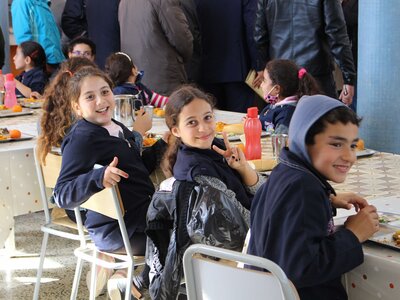Tunisia
- 16.6%
- of Tunisians live below the poverty line
- 30%
- of children under 5 and pregnant and nursing women suffer from anaemia
- 12.4 million
- population
Persistent political and socioeconomic challenges, coupled with a reliance on external funding, have led to social tensions and a delayed economic recovery.
An economic recession, high unemployment, climate change and regional disparities affect vulnerable people’s access to nutritious diets.
Additionally, Tunisia's dependence on agricultural imports, exacerbated by economic challenges and high inflation rate, has led to food shortages.
The ongoing five-year drought has further strained agriculture – diminishing harvests, destabilizing dairy production and harming olive crops. As a result, malnutrition has surged, affecting 30 percent of children under 5 and 32 percent of pregnant and breastfeeding women.
WFP's response includes providing technical support to strengthen social protection programmes, supporting the National School Feeding Programme, and promoting local agriculture to reduce import dependence.
What the World Food Programme is doing in Tunisia
-
Capacity strengthening
-
WFP provides technical assistance and policy guidance, elevating the capacity of national institutions, particularly within the education sector. This involves bolstering the infrastructure for school meals and inclusive, shock-responsive social protection initiatives – including the establishment of a national food security monitoring system and conducting gender-sensitive food security assessments.
-
School meals
-
Rural women
-
Climate action
Tunisia news releases
Go to pagePartners and donors
Find out more about the state of food security in Tunisia
Visit the food security analysis pageOperations in Tunisia
Contacts
Office
35 rue de l'ile d'Islande, Les Berges du Lac II
Tunis
Tunisia






